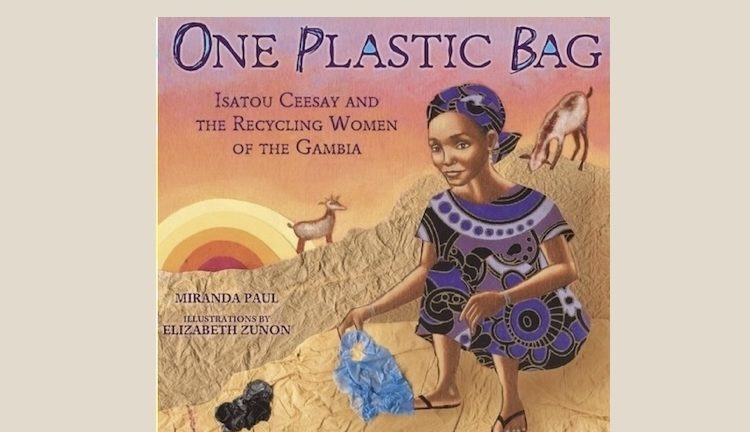By Lisa Vives, Global Information Network
NEW YORK | 22 April 2024 (IDN) — Earth Day today has been marked around the world with demonstrations, conferences and awards for environmental activists. Africa is part of the program.
The theme is “Planet vs Plastics” bringing attention to the serious issue of plastic pollution and how it harms nature.
Earth Day was first organized in 1970 by Wisconsin Senator Gaylord Nelson—who was inspired by student protests against the Vietnam War. The idea was to combine the energy of student protests with an emerging public consciousness about air and water pollution.
According to the Earth Day website, it has since evolved into the planet’s largest civic event.
This week, volunteers with Sustainable Vibes, a Nigerian environmental group, picked up plastic left on the street and cleared gutters.
“We don’t have to wait for days like the World Earth Day to become more conscious of our environment,” said activist Sonia Ugwunna.
Nigeria produces more than 2 million tons of plastic waste a year, according to the World Wildlife Fund for Nature.
In Kenya, a local start-up in Mombasa was turning plastic pollution into something useful.
Twende Green Ecocycle (TGE) buys plastic waste, collects plastic on beaches and recycles it into sustainable school furniture.
“In Mombasa alone, over 80 tons of waste is dumped every day,” commented Churchill Muriuki, TGE’s co-founder. “Of this, 20 percent is plastic of which only 5 percent is recycled. So 95 per cent ends up in the beautiful ocean and ends up polluting the marine life.”
After collection, the plastic is shredded and washed before being compressed under high heat to make relatively cheap school desks and chairs that do not chip compared to traditional wooden furniture.
On April 22, Uganda will join the rest of the world to celebrate Earth Day with a pledge to combat plastic pollution.
The government has introduced measures aimed at restricting the use of single-use plastics, a bold step that aligns with the East African nation’s broader agenda of fostering sustainability and preserving its rich natural heritage.
Right now, a large percentage of plastic products end up contaminating drainage channels which is creating floods in some areas, said Alfred Okot Okidi, the environment ministry’s permanent secretary.
In Ghana, the Church of Pentecost has been campaigning for plastic waste management, calling it an employment opportunity and a source of income.
“Let’s see if some business entrepreneurs will come on board and take charge of the plastics which others will collect for a fee. By doing so, we keep the streets and environment clean,” said Apostle Eric Kwabena Nyamekye.
Several countries, however, have been singled out for doing less than their fair share. Eritrea, to name one, fares worst in the world in plastic waste management, according to Down To Earth, a publication focused on the politics of development and the environment with help from the New Delhi-based group Science and the Environment.
Around 97% of plastic waste created in Eritrea is mismanaged, according to the group which calculates the date when the amount of plastic waste outweighs the world’s ability to manage it, with environmental pollution occurring as a result.
Countries whose waste management capacity is fully exhausted, leaving waste to find its way into the natural environment include Mozambique, Uganda, Kenya, the UK, the US, and Brazil, among others.
One remarkable success story, however, is that of Isatou Ceesay—a Gambian activist and social entrepreneur, popularly referred to as the Queen of Recycling. She initiated a movement called One Plastic Bag in the Gambia. Through this movement, she educated women in The Gambia to recycle plastic waste into sellable products that earned them income.
“We plucked plastic bags from trash piles and took them home together with my four friends. We washed the bags, dried them, cut them into strips, and crocheted them into bags.”
The Gambian Women’s Initiative has grown and now empowers marginalised poor women with support and income.
A book written about Ms. Ceesay is still on sale. One Plastic Bag can be obtained through Amazon. [IDN-InDepthNews]
Photo: Cover of One Plastic Bag.
IDN is the flagship agency of the Non-profit International Press Syndicate


